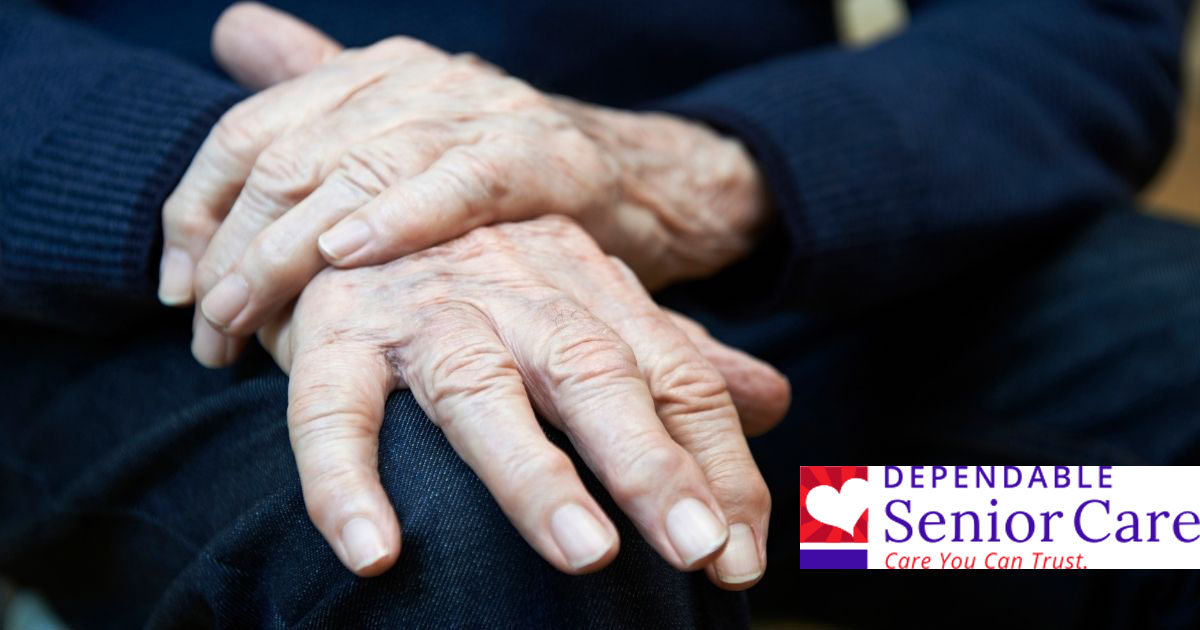Thanks to the efforts of celebrities like Michael J. Fox and Linda Ronstadt, public awareness about Parkinson’s disease is greater than ever before. When your aging-in-place elderly loved one is diagnosed with Parkinson’s, it’s a real game changer for the entire family.
Helping them plan for tomorrow while getting the most out of life every day takes some mindful planning and preparation. April is Parkinson’s Awareness Month, making it the perfect time to rethink your loved one’s care strategy so that their quality of life remains good.
What Is Parkinson’s Disease?
Parkinson’s is a neurogenic disorder that predominantly affects the dopamine-producing brain cells (neurons) in the organ’s substantia nigra region. With no known cause, Parkinson’s disease (PD) starts with subtle signs that can vary from individual to individual.
Those symptoms may include:
- Limb rigidity
- Bradykinesia
- Tremors, mainly while at rest
- Gait and balance issues
- Communication problems
As the disease slowly progresses the symptoms also become more noticeable. There is no cure for Parkinson’s, although treatment options like surgery and medications can help. And while PD itself isn’t fatal, disease complications later in life may become serious and deadly.
Caring for a Senior with PD
As Michael J. Fox and Linda Ronstadt have shown, someone diagnosed with PD can still enjoy a good quality of life. When that individual is a close family member or friend, taking these steps as an informal caregiver will help ensure that they receive the care that’s needed:
Learn all you can
Once your loved one has been diagnosed with Parkinson’s learn all you can about the disease. Learn about the symptoms, treatments and limitations. A great place to start is the Parkinson’s Foundation, along with your loved one’s doctors, online chat rooms and caregiver support groups. Educating yourself about what to expect will help you provide a higher level of care as the disease progresses.
Form a caregiving team
Your loved one will probably be under the care of a neurologist, which is a physician that specializes in neurological disorders. Starting with their doctors, build a caregiving “all-star” team with members whose time and talents may be useful as the disease progresses. Those individuals may include:
- Other family members, neighbors and friends
- Physical, speech and occupational therapists
- A geriatric care manager
- Community volunteers
- Meal delivery and paratransit service providers
- Professional in-home caregivers
As PD progresses it may become more difficult for your loved one to perform activities of daily living (ADLs), like eating, bathing and getting dressed. For that reason and others, it’s critical to communicate with fellow care team members so that you can make adjustments as needs change.
Anticipate communication challenges
Because PD targets brain cells, motor skills and muscles that are used for speaking, listening and comprehending, communication challenges are common. Keeping your loved one safe and comfortable requires the ability to bridge that inevitable communication gap.
Maintain quality of care by learning about and honing your Parkinson’s communication skills. Taking your loved one to a licensed speech therapist will also help equip them with the skills necessary to hurdle communication barriers.
Take care of yourself
Caring for a loved one with Parkinson’s can be a physically and emotionally demanding job. Don’t place yourself at risk for caregiver burnout. Instead, take a well-deserved break before fatigue sets in. Also be sure to eat right, get plenty of sleep and exercise regularly. If no one trustworthy is available to fill in, it may be best to hire a respite caregiver from a licensed home care agency until you get recharged.
Family Trusted Respite Care for Seniors in South Florida
Although it’s highly rewarding, caring for an aging loved one with Parkinson’s can be stressful and demanding. At Dependable Senior Care, our highly qualified in-home caregivers are trained to care for seniors with unique needs, including those with Parkinson’s disease. Owned and operated by healthcare professionals with 80+ years of combined experience, our personalized in-home solutions are available 7 days a week, ranging from a few hours per day, to 24-hour and live-in care.
In addition to respite care, Dependable Senior Care’s licensed and insured caregivers can provide daily living assistance services for personal care, nursing care, companionship care, Alzheimer’s and dementia care. With offices in Palm Beach, Miami-Dade and Broward Counties, Dependable Senior Care is your family trusted source for senior in-home care in South Florida. To learn more now, or to schedule an initial consultation, please visit www.dependableseniorcare.com!

